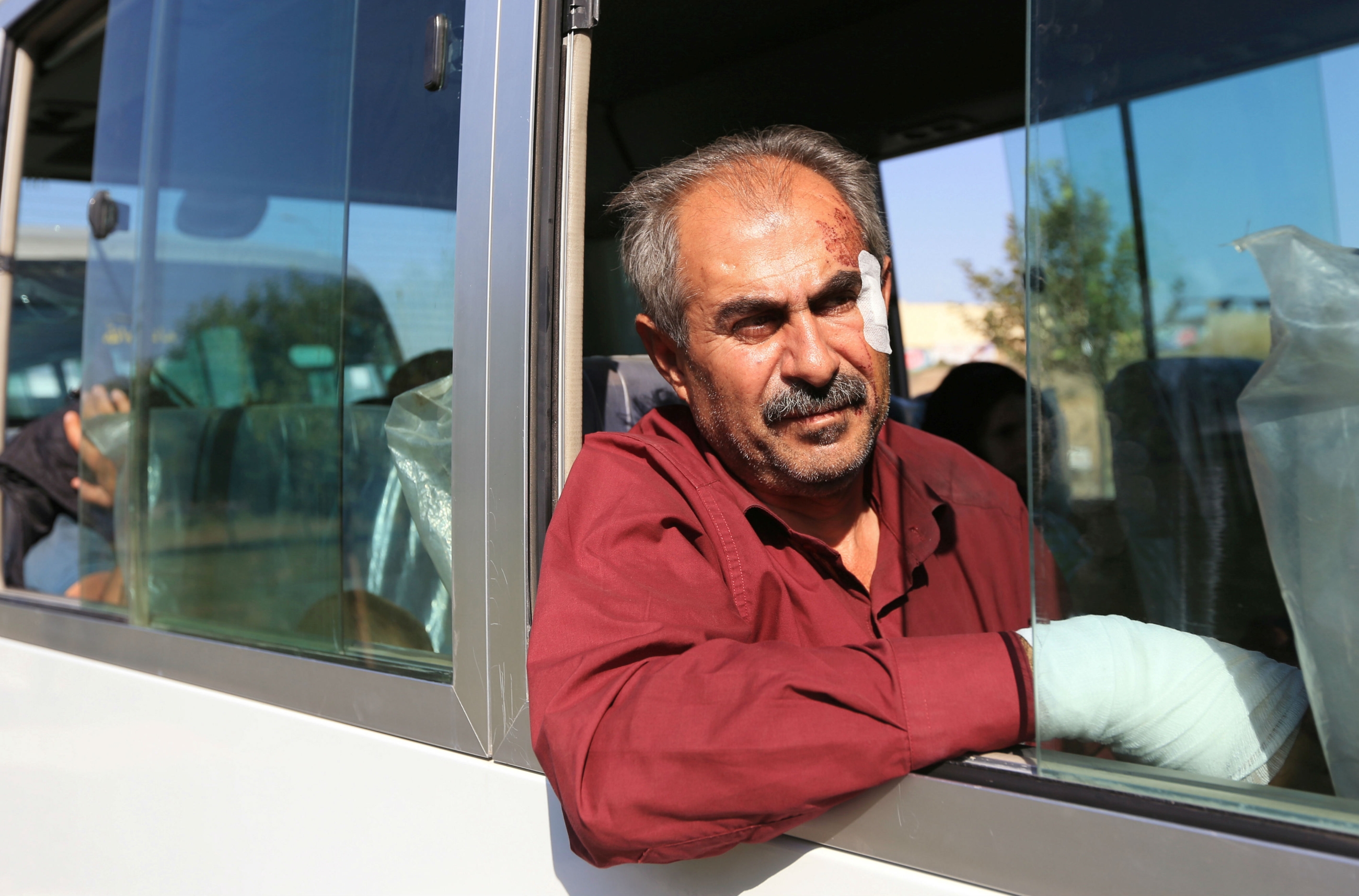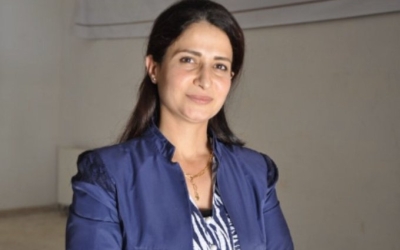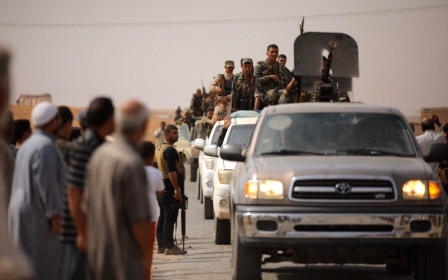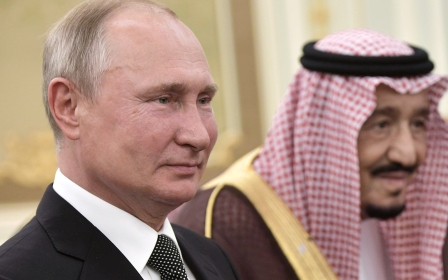Fleeing Turkish bombs and Damascus' conscription, Syrian Kurds head to Iraq

Now that Mohammed Hussein has made it to the Domiz camp in Iraqi Kurdistan, he doesn’t know what to expect.
Talk of a return to northeastern Syria, where he has just fled from, is muted.
His hometown Qamishli has been regularly shelled during a ferocious Turkish offensive, as Ankara seeks to rid the area of Kurdish fighters in an operation that looks set to rage for some time.
But it’s not just the bombardment and battles that Hussein has fled. The young Syrian Kurd says he’s escaping conscription, too.
Struggling to repel Turkish forces and their Syrian rebel proxies, Kurdish authorities on Sunday agreed to a deal to see the return of President Bashar al-Assad’s soldiers to the autonomously run northeast.
New MEE newsletter: Jerusalem Dispatch
Sign up to get the latest insights and analysis on Israel-Palestine, alongside Turkey Unpacked and other MEE newsletters
Now local residents say Syrian government forces and the Kurdish YPG militia are seeking recruits as they look to push back the Turkish advance.
“The regime and YPG were snatching up young guys for military service,” Hussein tells Middle East Eye as he waits to get off the hot bus and begin registration with camp officials.
Before the offensive began, some 30,000 Syrians lived in Domiz, residing in concrete shelters with tin roofs. Early in Syria's eight-year war, the majority fled to the refugee camp, which is nestled amid scenic mountains and lies a 30-minute car journey from Iraq’s Dohuk.
But now a new wave of mostly Kurdish Syrians is drifting into Iraqi territory, swelling the camp’s population.
“I swear to God, there’s peace here,” Hussein says.
No return
Now safe in Iraq, Hussein bluntly describes the reality of life in his native Qamishli.
“The situation is not good,” he says. “It’s war.”
For Hussein, Turkish bombs and the possibility of being forced to fight in the YPG or Syrian army compelled him to head to the Iraqi border.
Others in the camp have fled the YPG, but years before.
Mohammed Zaki came to the camp in 2013. He is a fighter in the Rojava Peshmerga, the military wing of the YPG’s political rival, the Kurdish National Council (KNC).
Despite a common enemy in the Islamic State (IS) group and Turkey, the YPG has sidelined the KNC, leaving it to fight IS in Iraq instead.
'It’s humiliating to stay here and watch our brothers die in Rojava'
- Mohammed Zaki, KNC
Like Hussein and the new refugees, Zaki has a bleak outlook on the possibility of returning to Syria, especially given the current conflict with Turkey.
“It’s humiliating to stay here and watch our brothers die in Rojava,” he tells MEE, using the Kurdish name for northeast Syria.
Zaki serves near the town of Sahela along the Syrian border. He says he has seen Kurdish refugees, desperate for safety, come in recent days.
“They had no place to sleep,” he said. “They were hungry.”
Zaki’s father, also named Mohammed Zaki, says the new refugees are coming to a stable camp that is free of serious issues.
“Things are good,” the elder Zaki says. “Sometimes there are problems with water and electricity.”
‘If people come, we’re ready’
A variety of organisations support the camp, including the United Nations and the Kurdistan Regional Government (KRG). Serdar Khalaf, the camp director, says more Kurdish refugees from Syria are expected to come.
“We’ve prepared the camp,” he tells MEE from his office. “If people come, we’re ready.”
Suddenly he’s on his feet, as four more buses of refugees roll in. More than 180 came on Monday alone, he says.
Aid organisations in Iraq say they and the KRG are gearing up for an influx.
'Kurdish authorities in Iraq expect to receive, on overage, 1,000 refugees per week'
- Tom Peyre-Costa, NRC
The Kurdistan Region already hosts more than a million displaced people, including Syrians and Iraqis, according to the UN.
Within northeast Syria, more than 100,000 are now displaced due to the fighting. Many are fleeing further south towards the city of Hasakah.
The Turkish offensive has complicated aid efforts inside Syria. On Monday, the NGO Mercy Corps announced it was suspending operations in Syria and evacuating its foreign staff.
The KRG, along with NGOs, have prepared a camp for newcomers in Bardarash, between Duhok and the regional capital Erbil. The camp used to house displaced Iraqis from Mosul, according to Tom Peyre-Costa, the spokesperson for the Norwegian Refugee Council (NRC) in Iraq.
He says the number of refugees coming from Syria could be in the thousands.
“Kurdish authorities in Iraq expect to receive, on overage, 1,000 refugees per week,” Peyre-Costa tells MEE. “But the humanitarian community expects much larger numbers if the escalation of violence does not stop immediately.”
Middle East Eye delivers independent and unrivalled coverage and analysis of the Middle East, North Africa and beyond. To learn more about republishing this content and the associated fees, please fill out this form. More about MEE can be found here.





